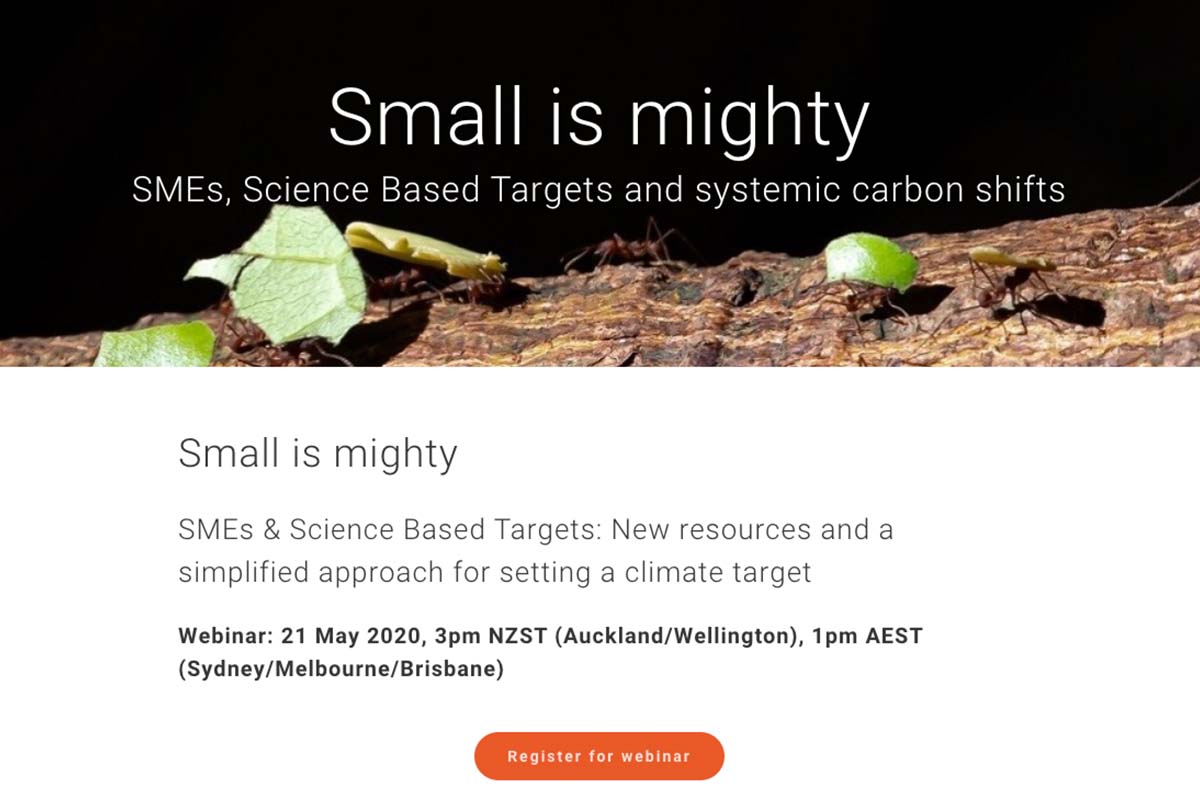HERA has just gone through an independent review of its carbon footprint. We’re sharing our experience, the resultant report and accounting spreadsheet in the hope that this will help you to do the same!
As we increasingly see and experience the tangible impacts of climate change and the visible impacts of business activity (or lack of it) in the lock-down period – we should all be trying to reduce our individual and business impacts.
However, if you haven’t proactively started reductions already and have been waiting for a business reason to do it… it looks like the much awaited time is finally here!
All indications are that the current Government is very much focused on sustainability, carbon emissions being a key focus. In a post Covid-19 world, it is therefore very likely that Government projects will start to place more emphasis on sustainability too. I would be very surprised if the Covid19 Budget doesn’t reflect this.
Watercare projects have already incorporated a stronger emphasis on sustainability, including carbon.
Calculate your carbon
Calculating your carbon footprint is the first step in the journey toward carbon neutrality. It enables you to:
- determine any offset requirements so that your business can go carbon neutral;
- identify the activities that are contributing most and where you should focus efforts to reduce your footprint; and
- start tracking your performance and improvements made.
That may sound complicated and expensive but it isn’t. HERA just went through this process and has developed a case study with some helpful links, tips and documents to show you what you will need to do this and what the likely timeframe and cost will be.
We believe there really is no reason for businesses these days to not calculate their carbon footprint. There are many support tools to do it and many consultants to help. It is also affordable and gets cheaper each time after you establish the systems and data collection requirements to make this easier.
Maybe post Covid-19, you can’t afford to use a consultant or to even offset… but the process is useful anyhow as it will help you identify improvement opportunities and prepare you to be in a position to offset once your financial performance improves (this is the case for HERA).
I’d really encourage you to explore the benefits of taking these steps – if you have any questions about the process, please feel free to contact me at troy.coyle@hera.org.nz.
You may also be interested to upskill your carbon footprint knowledge with this webinar!
Small is mighty! SMEs, Science Based Targets and systemic carbon shifts
Since April 2020 a streamlined approach for organisations with less than 500 employees is available to set science-based climate targets. SMEs are the backbone of Australia and New Zealand’s economies and play a critical role in the global response to Climate Change. However, they often have fewer resources to set carbon targets.
Join WWF Australia and thinkstep-anz for a 30 minute webinar on 21 May and discover the new speedy and simplified approach developed by the Science Based Target initiative (SBTi) to enable SMEs to grasp the benefits that climate action offers.
Date & Time:
Thursday 21 May 2020
3 pm NZST (Wellington, Auckland)
Registration: Click here.


